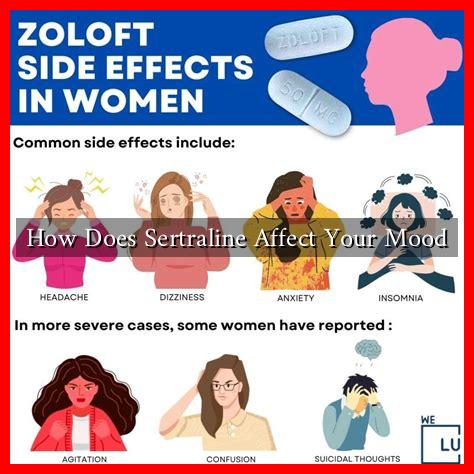-
Table of Contents
How Does Sertraline Affect Your Mood?
Sertraline, a selective serotonin reuptake inhibitor (SSRI), is one of the most commonly prescribed medications for depression and anxiety disorders. Understanding how sertraline affects mood can provide valuable insights for those considering this treatment option. This article delves into the mechanisms of sertraline, its effects on mood, and the experiences of individuals who have used it.
The Mechanism of Action
Sertraline works primarily by increasing the levels of serotonin in the brain, a neurotransmitter that plays a crucial role in regulating mood, emotions, and behavior. By inhibiting the reuptake of serotonin, sertraline allows more of this chemical to remain available in the synaptic cleft, enhancing its mood-lifting effects.
- Serotonin Regulation: Serotonin is often referred to as the “feel-good” neurotransmitter. Low levels of serotonin are associated with mood disorders, including depression and anxiety.
- Neurotransmitter Balance: By increasing serotonin levels, sertraline helps restore balance in neurotransmitter systems, which can lead to improved mood and emotional stability.
- Long-term Effects: While the immediate effects of sertraline may take a few weeks to manifest, many users report significant improvements in mood and overall well-being over time.
Effects on Mood
The impact of sertraline on mood can vary from person to person. However, several common effects have been documented in clinical studies and patient reports:
- Reduction in Symptoms of Depression: Many users experience a decrease in feelings of sadness, hopelessness, and worthlessness.
- Decreased Anxiety: Sertraline is effective in reducing symptoms of anxiety, including excessive worry and panic attacks.
- Improved Emotional Regulation: Users often report better control over their emotions, leading to fewer mood swings and irritability.
- Enhanced Quality of Life: With improved mood, individuals may find it easier to engage in social activities, work, and hobbies.
Case Studies and Statistics
Research supports the efficacy of sertraline in improving mood. A study published in the Journal of Clinical Psychiatry found that sertraline significantly reduced depressive symptoms in over 60% of participants after 12 weeks of treatment. Additionally, a meta-analysis of multiple studies indicated that SSRIs, including sertraline, are effective in treating generalized anxiety disorder, with a response rate of approximately 50-60%.
Individual case studies also highlight the positive effects of sertraline on mood:
- Case Study 1: A 35-year-old woman with major depressive disorder reported a marked improvement in her mood and energy levels after starting sertraline, allowing her to return to work and engage in social activities.
- Case Study 2: A 42-year-old man with generalized anxiety disorder experienced a significant reduction in anxiety symptoms, enabling him to participate in family gatherings without overwhelming fear.
Potential Side Effects
While sertraline can have a positive impact on mood, it is essential to be aware of potential side effects. Common side effects include:
- Nausea
- Insomnia
- Sexual dysfunction
- Weight gain
Most side effects are mild and tend to diminish over time. However, it is crucial to discuss any concerns with a healthcare provider to ensure the best treatment plan.
Conclusion
Sertraline can significantly affect mood by increasing serotonin levels in the brain, leading to improvements in symptoms of depression and anxiety. While individual experiences may vary, many users report enhanced emotional regulation and a better quality of life. Understanding both the benefits and potential side effects of sertraline is essential for anyone considering this medication. Always consult with a healthcare professional to determine the best course of action for your mental health needs.


